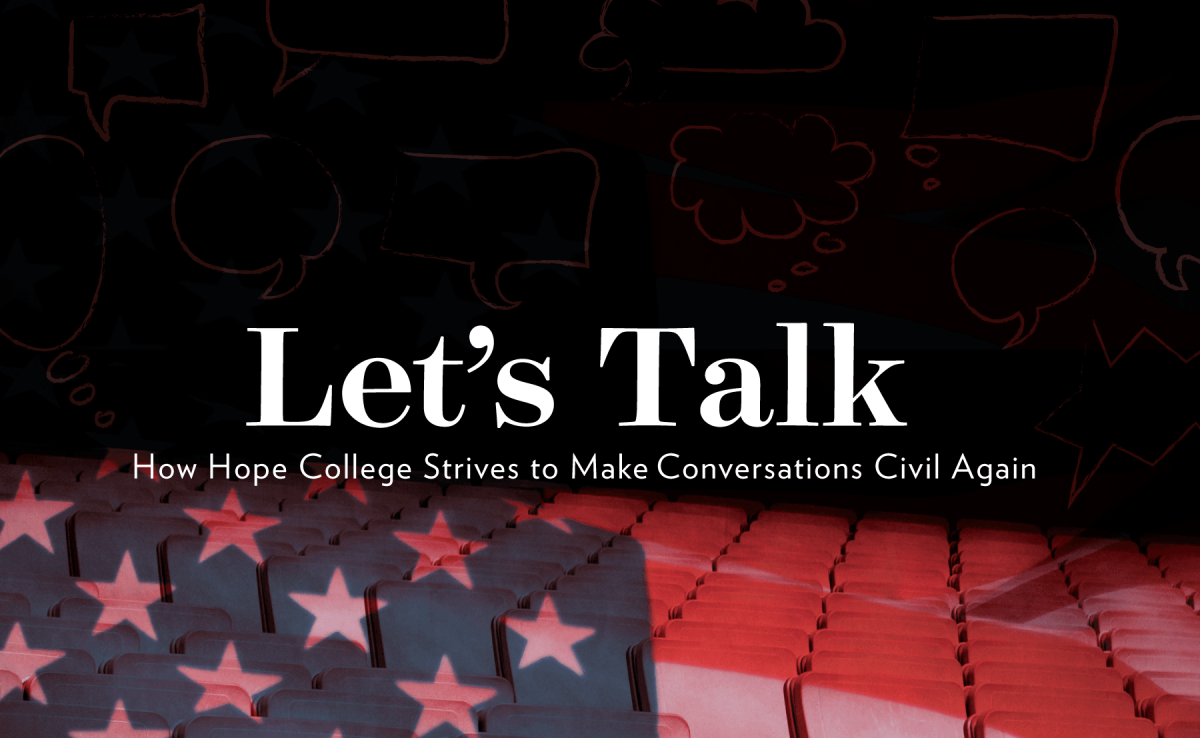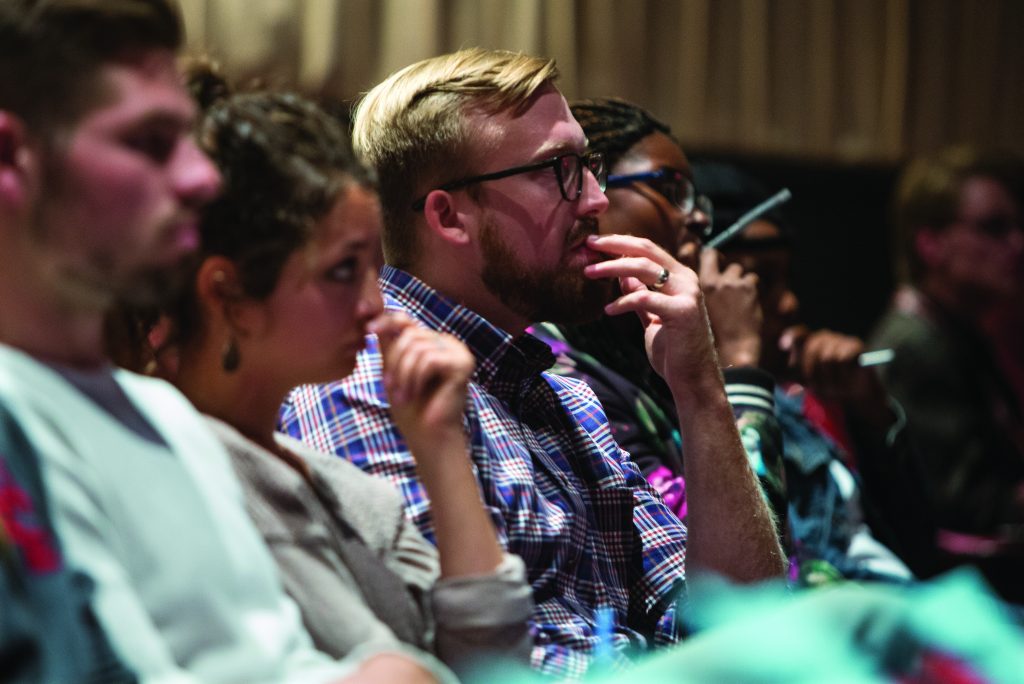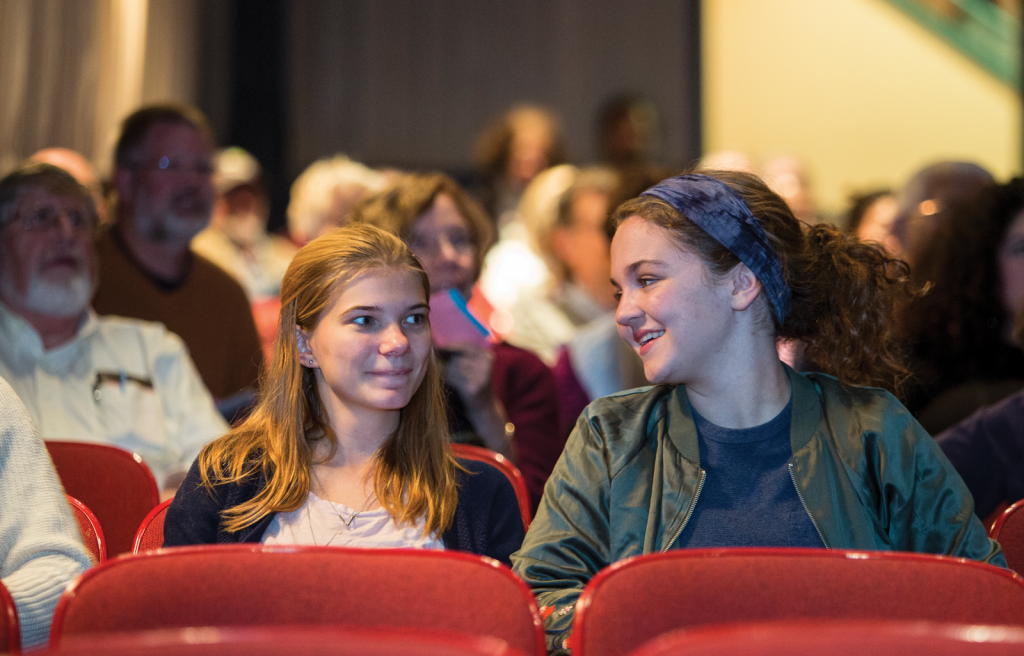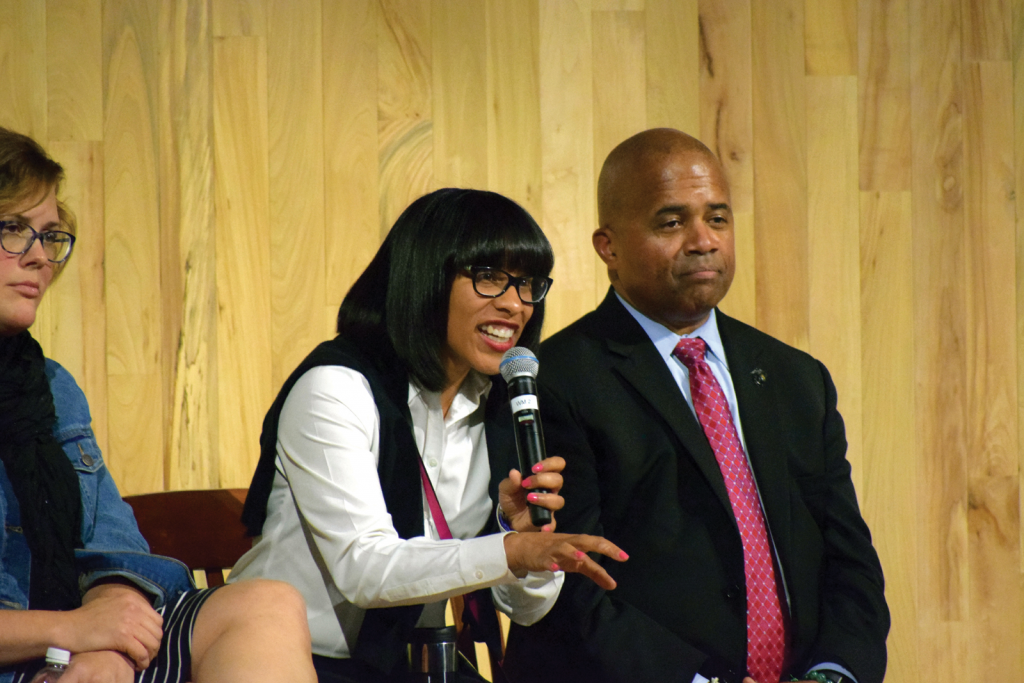Let’s Talk
In today’s America, a craggy schism rocks almost any brand of public discourse, leaving deep welts of incivility on families, communities, the workplace and, of course, college campuses. For a country that has (or had?) prided itself on open dialogue, a remarkable number of people now shy away from controversial discussions for fear of immediate, outright anger with a steaming serving of disrespect on the side.
In “Civility in America: A Nationwide Survey,” conducted by Weber Shandwick and Powell Tate with KRC Research, 59 percent of respondents say they quit paying attention to political debates and conversations because of negative tone or lack of civility. A record-high 75 percent of Americans believe that incivility has risen to crisis levels, 73 percent believe the U.S. is losing its status as a civil nation, and 75 percent blame it on politicians and 69 percent on social media and the internet. On the flip side, though, 75 percent say they would be willing to set a good example of practicing civility.
So there’s hope, because if people are willing to be civil, then they should be willing to listen, learn… and talk. Despite all the political ire, negativity and Twitter wars, it is clear that most Americans — and the vast majority of Hope College — long for civil discourse. But it’s going to take some counter-cultural efforts to get there.
Enter the “Virtues of Public Discourse,” Vox Populi, and Communication 240 and 340 (intergroup dialogue courses), all Hope College-created entities meant to ennoble civility in difficult conversations at Hope and beyond. The invaluable work of helping students navigate restive, uncivil waters to solid, nicer ground is not without good direction, nor is it knee jerk. Deliberate effort begets intentional education begets a compassionate community, and that all received front-and-center billing at Hope this year with President Dennis Voskuil’s installation address.
Drawing from the “Virtues of Public Discourse,” a guidance first created by three Hope professors in the early 2000s, Voskuil revived the document’s prominence in his speech titled “The Virtuous College.” Setting before the Hope community the five “spare but arresting” virtues again — humility to listen, hospitality to welcome, patience to understand, courage to challenge and honesty to speak the truth in love (see sidebar) — Voskuil recognized that each virtue provides “biblically-rooted parameters for the manner in which a Christian academic community should engage each other.” Their simple yet deep wisdom impressed him so much, he explained, that he wrote about them in his application letter to the Board of Trustees, commenting that not only would he strive to model them daily, but he’d also encourage his new campus to do the same.
Chris Bohle, associate director of student life, and juniors Kathleen Muloma and Joe McClusky have shared Voskuil’s mindset for more than a year. As the main staff and student directors of Vox Populi — politically focused but interdisciplinary forums that tackled weighty topics around last year’s election and now in its aftermath — Bohle, Muloma and McClusky used the “Virtues” document to frame and introduce every session potentially rife with incivility. In 2016, Vox Populi — which means “voice of the people” — discussed post-truth politics, party affiliation and faith, social media wars and how to handle politicized familial dissension. In 2017, Confederate symbolism, fake news and immigration policy headlined Vox events, all topics chosen by a nine-student committee and then addressed by faculty panels. For Vox organizers, there would be no shying away from hard conversations. Courage to challenge — one of the Virtues of Public Discourse — is immediately loaded on board simply because the topics Vox Populi grapples with are meant to stimulate discussion on both sides of the political barge.
“It’s easy to assume at a college that you are only going to get liberal opinions, but that has not been true at our events,” says Bohle. “There are pieces of our conversations — like when we discussed if Jesus would be a Republican or Democrat or the financial ramifications of the Trump presidency — that have brought both sides of the issues front and center. But at other times, we know what truth is and we can’t say everything has two equally logical sides backed up by evidence. We know there is a lot of gray area in life but there has to be truth in certain situations, especially when it is a moral situation like denouncing the KKK.”
“Vox Populi has taught me that healthy, impassioned, educated conversations are possible,” explains Muloma, a chemistry major with a biochemistry emphasis. “We are not without hope for honest discussions without pulling out hair or insulting the other person. Every time students attended, it reminded me that I am not alone in my desire for these healthy conversations, and that Hope students do want to talk about the controversial topics, and are seeking opportunities to learn and get better in the context of the Christian faith.”
And for Muloma, the Virtues of Public Discourse have provided a positive way to engage and learn through controversy without the threat of verbal fisticuffs.
“The Virtues of Public Discourse enable me to do two things while interacting with friends and family about politics,” she continues. “First, I am freed from the pressure to change peoples’ minds. Honest discourse takes changing someone’s mind off the table. It is a chance for each side to share their mind and heart and maybe plant a seed or an idea. Any change of heart, I believe, comes from God. Second, I am empowered to be educated and courageous enough to advocate for my opinions and beliefs. The Virtues of Public Discourse do not encourage softening convictions, but in fact increasing them. They teach how to communicate those convictions with respect for family and friends as well as even strangers on the street as individuals created in the image of God.”
In Dr. Deirdre Johnston’s intergroup dialogue classes, engaging in difficult conversations takes on a more structured process as social identities, social justice, conflict resolution and communication styles are explored. To reach the finish line of successful group discussions, Johnston teaches that trust must be established first. Without it, any controversial confrontation, with one person or many, is following a recipe for communicative disaster.
“We get into trouble when we casually say ‘let’s have a dialogue,’” explains Johnston, a professor of communication. ‛We’re going to have a dialogue tonight, here’s the time and the place, come talk about some horrifically controversial topic.’ Then it blows up and it doesn’t go well. That’s because the group has been invited to dialogue without having the table set right because everyone goes into it defensively so listening and understanding don’t take place. So we must start from a place of trust,” which is her first order of business.
But trust is hard earned. And there is no silver bullet to gain its benefits quickly in a group setting; it takes time and skills that are counter-cultural for contemporary America. The capacity to listen deeply, to focus on the other, to speak clearly and to ask essential questions about identities and ideology is time-consuming and not intuitive. Social media “conversations” — where no or minimal trust has been established — yield to instant gratification via the route of opinionated retaliation. In-person conversations succumb to impatience. What does come naturally then — and in quick order — is prickly defensiveness and the need to be heard “so serial monologues and mindsets result,” Johnston says.
To combat these tendencies, Johnston teaches her Hope students to actually “lean into” tough dialogue. She’s taught faculty at Hope, and other colleges and universities, too, to do the same during summer workshops for the past seven years because “if we, as professors, run away from the get-go, we as a campus and a culture are not going to fare well in this,” she says.
“When I do workshops for other universities, especially Christian colleges, I point out that we have scriptural basis for all of this,” she continues. “We are supposed to, as Christians, lean into conflict. Turning the other cheek is not running away or avoiding or putting niceties on a controversy and pretending it isn’t there. Instead we need to lean into it and allow the fruits of the Spirit to take over because, on our own, we can’t do this well.”
A fresh start must begin somewhere.
Why not at a place called Hope?
Approximately 150 faculty and staff have participated in Johnston’s intergroup dialogue training, resulting in at least 2,600 student exposures to constructive discussions at Hope in two years alone, she estimates. As palpable tensions sever the country and show no real sign of abating any time soon, Johnston can’t help but think that Hope is doing its part, small as it may be, to help to stem the onerous tide of incivility. A fresh start must begin somewhere. Why not at a place called Hope?
“When we teach about these things, when we stay in the fight and educate, we make the future of our democracy a priority. If we don’t, we put it in peril. We’ve got to talk about this stuff because when we do, we set an example and prepare our students to engage and to engage civilly.”
It’s a hopeful sentiment and for any American optimist a necessary one. So, go ahead and talk politics, and like Johnston, Bohle, McClusky, Muloma, Voskuil and the many others at Hope who have found their civil voice, remember to be humble, hospitable, brave, patient and honest as if your nation depends on it. Because it does. Let’s talk.





